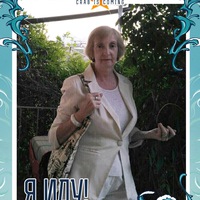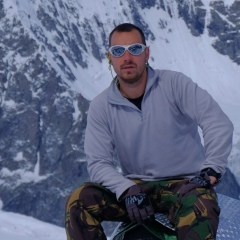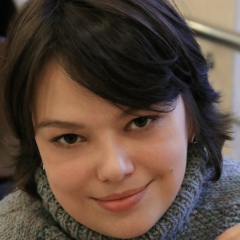#wednesday_innovation@senbossya
Solar Decathlon (солар декатлон, солнечное десятиборье) — международный архитектурный и инженерный конкурс. Финансируется United States Department of Energy (DOE) и National Renewable Energy Laboratory (NREL). В соревновании участвуют команды университетов. Конкурс изначально появился в США, с 2010 года проходит Solar Decathlon Europe, на который приглашаются студенческие команды со всего мира. Впоследствии конкурс расширил географию ещё сильнее появились Solar Decathlon Africa, Solar Decathlon China, Solar Decathlon Latin America and Caribbean, Solar Decathlon Middle East.
За всю историю проведения чемпионата русские команды ни разу не принимали участия в нем, однако, в составе некоторых команд присутствовали студенты российского происхождения, обучающиеся заграницей. В 2019 году в конкурсе участвовали команды из 16 стран. Участникам соревнований предлагают за 15 дней построить инновационный дом или модернизировать существующий. В 2021 году конкурс пройдёт в Германии, заявки принимаются до 25 октября 2019 года, по адресу solardecathlon.eu. Студентам предлагают выбрать сценарий урбанистической ситуации (реновация и расширение здания, строительство в промежутке между домами, добавление новых этажей), дальше необходимо придумать какая социальная группа получит выгоду от этого здания, создать проект и за 15 дней построить демонстрационный модуль.
Лучшие проекты, получают поддержку и реализуются по возвращении домой. Так, например, команда Университета Делфта (Голландия), создали проект реновации офисного помещения в дом для студентов (первое видео). Проект включает в себя живые стены (растения на стенах), гидропонные фермы, сбор дождевой воды и солнечной энергии. Администрация Делфта к 2023 году планирует построить свыше 5 000 инновационных домов для студентов, чтобы предоставить возможность иностранным студентам остаться в Голландии по завершении обучения. Помощь студенческой команде в создании проекта оказала архитектурная компания MOR.
Строительство инновационных домов стало практически национальной идеей Голландии. Я уже рассказывал раньше о проекте Regen Villages, который реализуется в Almere - www.regenvillages.com. Недавно моё внимание привлек ещё один проект команда студентов Роттердамского университета, под руководством профессора-архитектора Арьяна Карссенберга, построили экспериментальный дом-теплицу (второе видео). Это временный проект, дом простоит 3 года, после чего будет разобран и перестроен новой группой студентов по новому плану. Студенты проводят в этом доме мастер-классы для школьников, устраивают встречи, и испытывают его. Kirsten Dirksen, активист портала faircompanies.com получила приглашение пожить с семьёй в этом доме.
Кажется, Голландия нашла решение проблемы гигополисы vs микропоселения - нужно их объединить. Вскоре Амстердам и его окресности, а также крупнейшие голландские города превратятся в гигополисы, состоящие из автономных микропоселений, учитывающих интересы разных групп людей и предоставляющих исключительный уровень качества жизни.
Solar Decathlon (солар декатлон, солнечное десятиборье) — международный архитектурный и инженерный конкурс. Финансируется United States Department of Energy (DOE) и National Renewable Energy Laboratory (NREL). В соревновании участвуют команды университетов. Конкурс изначально появился в США, с 2010 года проходит Solar Decathlon Europe, на который приглашаются студенческие команды со всего мира. Впоследствии конкурс расширил географию ещё сильнее появились Solar Decathlon Africa, Solar Decathlon China, Solar Decathlon Latin America and Caribbean, Solar Decathlon Middle East.
За всю историю проведения чемпионата русские команды ни разу не принимали участия в нем, однако, в составе некоторых команд присутствовали студенты российского происхождения, обучающиеся заграницей. В 2019 году в конкурсе участвовали команды из 16 стран. Участникам соревнований предлагают за 15 дней построить инновационный дом или модернизировать существующий. В 2021 году конкурс пройдёт в Германии, заявки принимаются до 25 октября 2019 года, по адресу solardecathlon.eu. Студентам предлагают выбрать сценарий урбанистической ситуации (реновация и расширение здания, строительство в промежутке между домами, добавление новых этажей), дальше необходимо придумать какая социальная группа получит выгоду от этого здания, создать проект и за 15 дней построить демонстрационный модуль.
Лучшие проекты, получают поддержку и реализуются по возвращении домой. Так, например, команда Университета Делфта (Голландия), создали проект реновации офисного помещения в дом для студентов (первое видео). Проект включает в себя живые стены (растения на стенах), гидропонные фермы, сбор дождевой воды и солнечной энергии. Администрация Делфта к 2023 году планирует построить свыше 5 000 инновационных домов для студентов, чтобы предоставить возможность иностранным студентам остаться в Голландии по завершении обучения. Помощь студенческой команде в создании проекта оказала архитектурная компания MOR.
Строительство инновационных домов стало практически национальной идеей Голландии. Я уже рассказывал раньше о проекте Regen Villages, который реализуется в Almere - www.regenvillages.com. Недавно моё внимание привлек ещё один проект команда студентов Роттердамского университета, под руководством профессора-архитектора Арьяна Карссенберга, построили экспериментальный дом-теплицу (второе видео). Это временный проект, дом простоит 3 года, после чего будет разобран и перестроен новой группой студентов по новому плану. Студенты проводят в этом доме мастер-классы для школьников, устраивают встречи, и испытывают его. Kirsten Dirksen, активист портала faircompanies.com получила приглашение пожить с семьёй в этом доме.
Кажется, Голландия нашла решение проблемы гигополисы vs микропоселения - нужно их объединить. Вскоре Амстердам и его окресности, а также крупнейшие голландские города превратятся в гигополисы, состоящие из автономных микропоселений, учитывающих интересы разных групп людей и предоставляющих исключительный уровень качества жизни.
# wednesday_innovation @ senbossya
Solar Decathlon (Solar Decathlon, Solar Decathlon) is an international architectural and engineering competition. Funded by the United States Department of Energy (DOE) and the National Renewable Energy Laboratory (NREL). The competition involves teams of universities. The competition originally appeared in the USA, since 2010 Solar Decathlon Europe has been held, to which student teams from around the world are invited. Subsequently, the competition expanded its geography even more: Solar Decathlon Africa, Solar Decathlon China, Solar Decathlon Latin America and Caribbean, Solar Decathlon Middle East appeared.
In the entire history of the championship, Russian teams have never taken part in it, however, some teams included students of Russian origin studying abroad. In 2019, teams from 16 countries participated in the competition. Competitors are invited to build an innovative home or upgrade an existing one in 15 days. In 2021, the competition will be held in Germany, applications are accepted until October 25, 2019, at solardecathlon.eu. Students are asked to choose a scenario of the urban situation (renovation and expansion of the building, construction in the interval between houses, adding new floors), then you need to figure out which social group will benefit from this building, create a project and build a demonstration module in 15 days.
The best projects receive support and are implemented upon returning home. For example, the team of the University of Delft (Holland) created a project for the renovation of an office building in a student house (first video). The project includes living walls (plants on the walls), hydroponic farms, collecting rainwater and solar energy. The Delft administration plans to build over 5,000 innovative student homes by 2023 in order to provide international students with the opportunity to stay in the Netherlands upon completion of their studies. Assistance to the student team in the creation of the project was provided by the architectural company MOR.
The construction of innovative houses has become almost the national idea of Holland. I have already talked about the Regen Villages project, which is being implemented at Almere - www.regenvillages.com. Recently, another project attracted my attention: a team of students from the University of Rotterdam, under the guidance of professor-architect Aryan Karssenberg, built an experimental greenhouse (second video). This is a temporary project, the house will stand for 3 years, after which it will be dismantled and rebuilt by a new group of students according to the new plan. Students hold master classes for schoolchildren in this house, arrange meetings, and experience it. Kirsten Dirksen, an activist at faircompanies.com, received an invitation to live with her family in this house.
It seems that the Netherlands has found a solution to the problem of gigopolis vs micro-settlements - we need to combine them. Soon, Amsterdam and its environs, as well as the largest Dutch cities, will turn into gigopolises consisting of autonomous micro-settlements that take into account the interests of different groups of people and provide an exceptional level of quality of life.
Solar Decathlon (Solar Decathlon, Solar Decathlon) is an international architectural and engineering competition. Funded by the United States Department of Energy (DOE) and the National Renewable Energy Laboratory (NREL). The competition involves teams of universities. The competition originally appeared in the USA, since 2010 Solar Decathlon Europe has been held, to which student teams from around the world are invited. Subsequently, the competition expanded its geography even more: Solar Decathlon Africa, Solar Decathlon China, Solar Decathlon Latin America and Caribbean, Solar Decathlon Middle East appeared.
In the entire history of the championship, Russian teams have never taken part in it, however, some teams included students of Russian origin studying abroad. In 2019, teams from 16 countries participated in the competition. Competitors are invited to build an innovative home or upgrade an existing one in 15 days. In 2021, the competition will be held in Germany, applications are accepted until October 25, 2019, at solardecathlon.eu. Students are asked to choose a scenario of the urban situation (renovation and expansion of the building, construction in the interval between houses, adding new floors), then you need to figure out which social group will benefit from this building, create a project and build a demonstration module in 15 days.
The best projects receive support and are implemented upon returning home. For example, the team of the University of Delft (Holland) created a project for the renovation of an office building in a student house (first video). The project includes living walls (plants on the walls), hydroponic farms, collecting rainwater and solar energy. The Delft administration plans to build over 5,000 innovative student homes by 2023 in order to provide international students with the opportunity to stay in the Netherlands upon completion of their studies. Assistance to the student team in the creation of the project was provided by the architectural company MOR.
The construction of innovative houses has become almost the national idea of Holland. I have already talked about the Regen Villages project, which is being implemented at Almere - www.regenvillages.com. Recently, another project attracted my attention: a team of students from the University of Rotterdam, under the guidance of professor-architect Aryan Karssenberg, built an experimental greenhouse (second video). This is a temporary project, the house will stand for 3 years, after which it will be dismantled and rebuilt by a new group of students according to the new plan. Students hold master classes for schoolchildren in this house, arrange meetings, and experience it. Kirsten Dirksen, an activist at faircompanies.com, received an invitation to live with her family in this house.
It seems that the Netherlands has found a solution to the problem of gigopolis vs micro-settlements - we need to combine them. Soon, Amsterdam and its environs, as well as the largest Dutch cities, will turn into gigopolises consisting of autonomous micro-settlements that take into account the interests of different groups of people and provide an exceptional level of quality of life.
У записи 3 лайков,
0 репостов,
225 просмотров.
0 репостов,
225 просмотров.
Эту запись оставил(а) на своей стене Артур Шумский
























